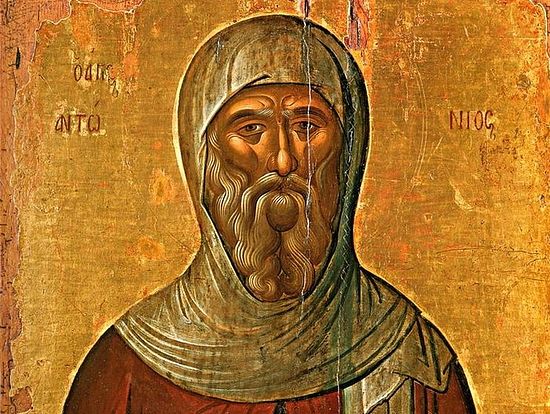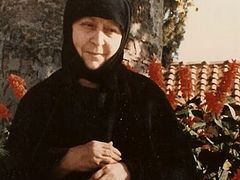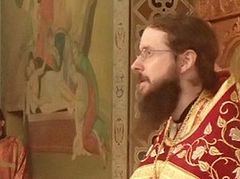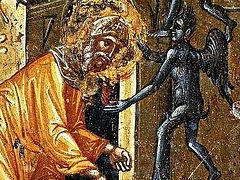We do not serve every day, and therefore the names and teachings of saints from whom we could learn so much pass us by and are rarely remembered. Thus, yesterday was celebrated the day of the founder of monastic labors in the Egyptian desert, St. Anthony the Great [commemorated January 17/30], in whose memory and honor were named all those who later bore this name, including the founder of Russian monasticism St. Anthony of the Kiev Caves.
I would like to direct your attention to only one event in his life. He left for the desert as the first of all ascetic monks, in order to do battle with the evil that existed in his heart. He did not run from the world—he left for the desert to for single combat, to wage war face to face with an evil that is more complex, more terrifying and destructive than the evil that surrounds us in the world.
And so, during one period of a terrible, destructive storm he was tried by temptations of all kinds; he battled desperately, he battled with all his strength, and finally his strength was exhausted—not only his emotional but also bodily strength—and he lay on the bare ground, feeling that he could struggle no longer. At that moment the Savior Christ stood before him; all darkness was illumined by His presence, and all those horrors retreated. Then, helpless to even stand before Him and bow down to Him, Anthony exclaimed, “Lord! Where were You when I was in such a terrible struggle? Couldn’t You help me?...” The Savior answered him, “I stood invisibly beside you, ready to help you, only if your faith were to waiver…”
These words of the Savior are directed at each one of us. We all stand before the face, or are under the power of an inner struggle: a struggle with darkness, a struggle with evil, with fear, with perplexity, with everything that makes up fallen human nature. And each of us ceaselessly prays, “O Lord, come! Lord, take this burden from me! Lord, free me!...”
So often do I hear the complaint that the Lord as if does not answer this cry of the soul. But in fact, the Lord stands beside us, watching joyfully when we courageously, with faith, with faithfulness in our hearts struggle in His name as warriors do battle for their king, struggling for him even if they must in this struggle be wounded, maimed, or killed.
This is our human calling—if we are Christ’s, then we are sent to this world by Christ in order to struggle and conquer by His name and in His name. Let us remember this every time we find ourselves under the power of temptation, when bitterness rises in us, and anger, fear, hatred, and every other passion: We are granted this struggle—precisely granted it. It is our honor, our glory that God entrusts us—us, the weak and insignificant—to struggle with evil in the world. And this struggle begins not outwardly, not in our opposition to those close and far, but it begin within us, in the victory over ourselves, in overcoming everything, becoming the masters of our own souls, taking control over our souls, bodies, minds, hearts, will, and lives—and giving it all into God’s hands, so that we might serve Him with our whole heart, our whole soul, all our strength, all our mind, and everything that we have. Amen.





It says he went into the desert for the purpose of battling the evil in his own heart. Is that incorrect? Are you suggesting his purpose for going into the desert was to do physical battle with demons? The article nowhere denies that he did physical battle with demons, but rather states that his purpose was to be purified of his own passions. His physical battles with the demons simply isn't the focus of this particular article.
It's better to slow down and read with comprehension than to constantly be on a crusade against the evil evil West.